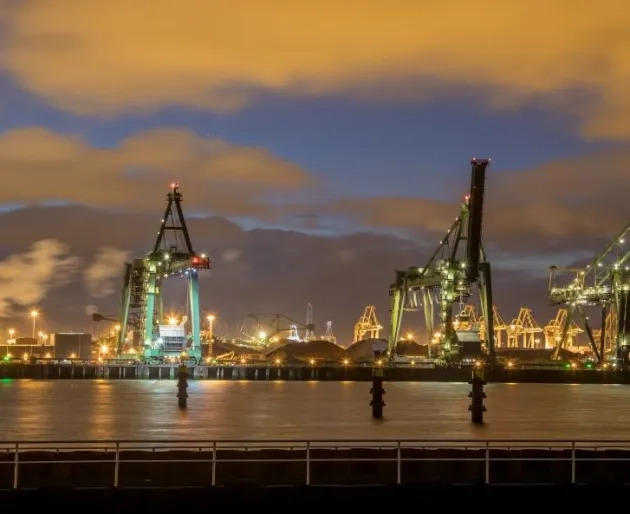Port of Antwerp-Bruges optimizes shipping with a data-driven strategy
The Port of Antwerp-Bruges is one of Europe’s largest ports, responsible for the coordination of up to 15,000 sea-going ships and 60,000 inland vessels annually. With growing traffic and complexity, there was an increasing need to optimize shipping infrastructure and nautical operations. However, the port's ability to leverage data for insights was constrained by fragmented data storage and limited analysis capabilities.
The automatic identification system (AIS) generated vast volumes of data, but its potential was untapped due to storage limitations and a lack of structured use cases. This created challenges in identifying bottlenecks, peak times, and other operational inefficiencies.
The automatic identification system (AIS) generated vast volumes of data, but its potential was untapped due to storage limitations and a lack of structured use cases. This created challenges in identifying bottlenecks, peak times, and other operational inefficiencies.
To boost efficiency and safety, the port aimed to unify data, predict delays, and enhance infrastructure and traffic management.
Becoming the Port of analytics optimizing vessel traffic
Port of Antwerp aims to leverage data for real-time vessel tracking and shipping optimization, focusing on analytics-driven insights with the requirements listed below:
Unify and analyze data for actionable insights.
Predict and mitigate operational delays.
Enhance infrastructure management and vessel traffic coordination.

Real-time analytics transform shipping traffic and operations
To address these challenges, the Port of Antwerp-Bruges partnered with Orange Business to implement a data-driven strategy. The collaboration involved:
- Workshops and Testing: Orange Business conducted data labs and pilot projects to assess the feasibility of analytics use cases, starting with visualizing berth occupation.
- Technological Architecture: A robust, scalable architecture leveraging Microsoft Azure, open-source tools, and technologies like Python and Spark was implemented.
- Knowledge Transfer and Co-Creation: Intensive collaboration ensured that the port’s team could continue leveraging and expanding the data framework independently.
Transformative results driving efficiency and Innovation
The Port of Antwerp-Bruges now leverages real-time insights to streamline traffic, make data-driven decisions, and adopt future-ready innovations like IoT and automated inspections.

